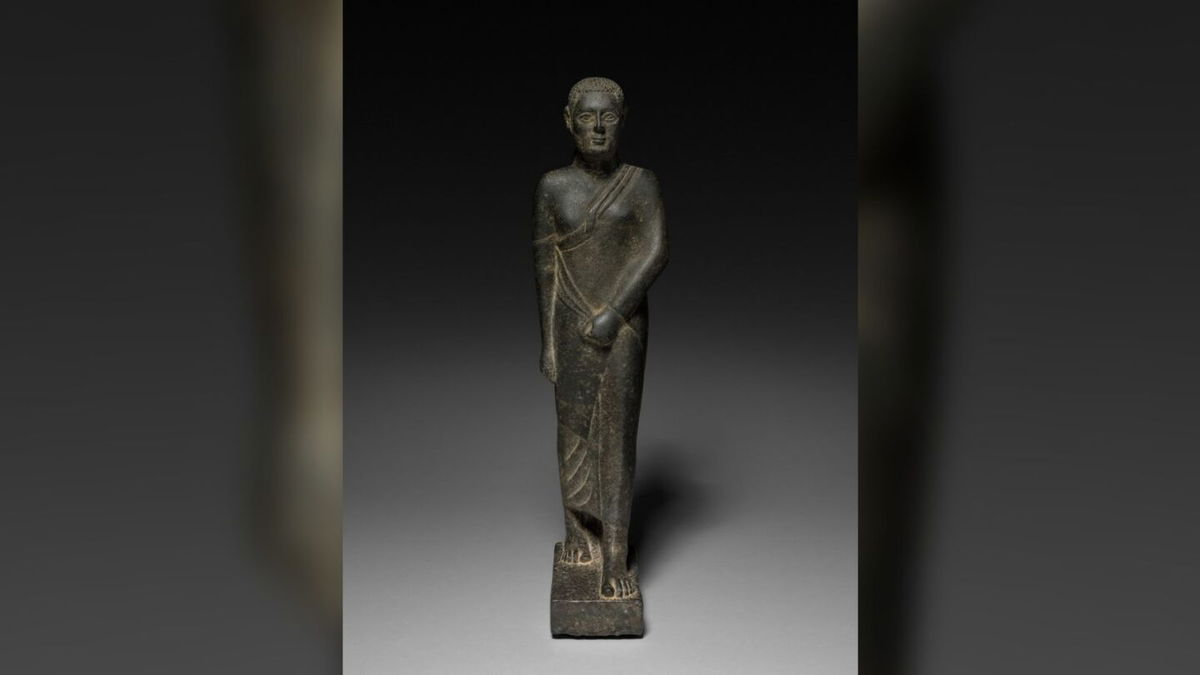The Cleveland Museum of Art is set to return a 2,200-year-old statue to Libya

A stone figure standing just under two feet tall will soon be returned to Libya.
By Zoe Sottile, CNN
(CNN) — A statue of a bearded man striding forward was crafted from black basalt over 2,000 years ago during the Ptolemaic dynasty.
Now, it’s finally set to return to Libya, where it was looted during British occupation in World War II, according to the Cleveland Museum of Art.
The museum, which has held the piece since 1991, announced the planned return in a Wednesday news release.
“Based on new information provided by the Department of Antiquities and research undertaken at the CMA, the museum voluntarily recognizes the statue as the property of Libya,” the news release read.
Mohamed Faraj Mohamed, head of Libya’s Department of Antiquities, said in the news release the department appreciated “the willingness of the Cleveland Museum of Art to work with the department in accomplishing the transfer of this important work.”
“We look forward to continued cooperation with the museum,” he said.
The statue stands almost two feet tall and was formed from basalt, a “hard volcanic rock formed from lava,” according to the museum’s website. The bearded man is dressed in “contemporary fashion” of the time: He’s wearing “a T-shirt, wraparound skirt, and shawl.”
The figure was discovered in a large storage jar during 1937-1938 excavations of the Columned Palace at Ptolemais in Cyrenaica, now part of eastern Libya, according to a statement shared with CNN by the Cleveland Museum of Art.
The statue then ended up at the Ptolemais Museum in Libya, which was destroyed during the British occupation of the area. A 1950 publication by an Italian scholar noted the sculpture was “was likely lost in 1941.”
By 1960, the piece had made its way to Lucerne, Switzerland. The statue spent the decades between 1966 and 1991 in the private collection of New York art collectors Lawrence and Barbara Fleischman and was donated to the museum in 1991.
“Given the rarity of the sculpture type – carved of stone, with precise replicas very unlikely – and the extremely close resemblance between the sculpture given to the CMA in 1991 and the sculpture described and illustrated in 1950, together with the wartime events that took place in Libya, the CMA has concluded that the sculpture rightfully belongs to Libya,” the museum told CNN.
The-CNN-Wire
™ & © 2024 Cable News Network, Inc., a Warner Bros. Discovery Company. All rights reserved.